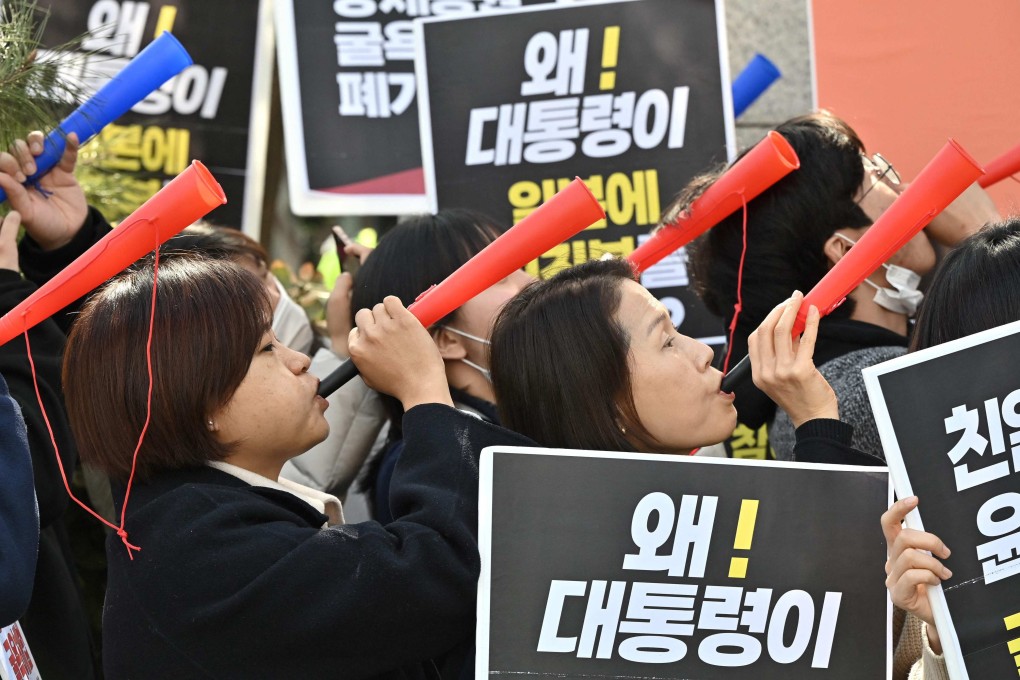In South Korea, controversy over key ‘pro-Japan’ academic appointments reopens WWII wounds
- Selection of scholars to lead key research institutes sparks claims of history revision amid concerns over security ties with Tokyo, Washington

Controversy in South Korea over key academic appointments has reopened old war wounds between Seoul and Tokyo, with officials facing allegations of legitimising Japan’s colonial rule to shore up security ties with Tokyo and Washington.
The saga, which is threatening to mar coming Liberation Day celebrations this week, centres on the conservative administration’s selection of scholars seen as sympathetic to Japan to lead three key state-funded research institutes focused on historical studies.
In a first-ever move, descendants of anti-Japanese fighters – those who fought for Korea’s independence from Japan – and opposition politicians have vowed to boycott the high-profile annual ceremony on August 15, with President Yoon Suk-yeol set to deliver a speech.
At the heart of the controversy is the appointment of Kim Hyung-seok, a history professor, as the new head of the Independence Hall of Korea, an institution dedicated to preserving the memories of pro-independence fighters and the suffering endured during the colonial era.
The Heritage of Korean Independence (HKI) and 24 other organisations representing the families of these fighters are demanding Kim’s resignation, accusing him of being akin to the pro-Japanese collaborators of the colonial era.
“From the outset, Kim has made it clear that he intends to use the Independence Hall as a platform to rehabilitate the reputation of pro-Japanese collaborators,” the left-leaning Hankyoreh newspaper said in an editorial on Saturday.
